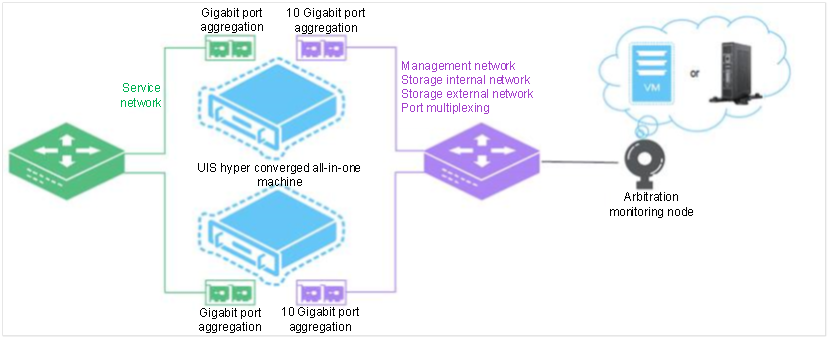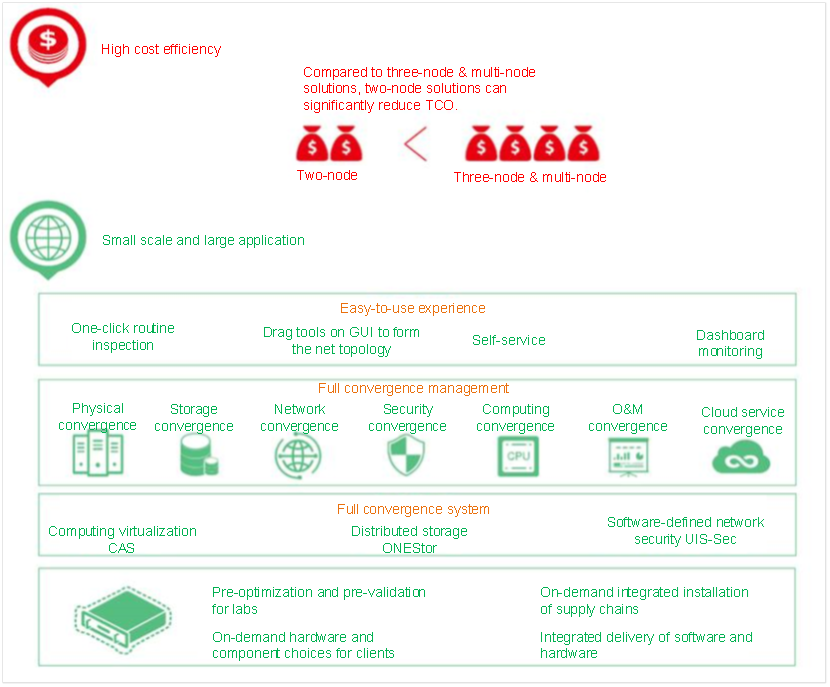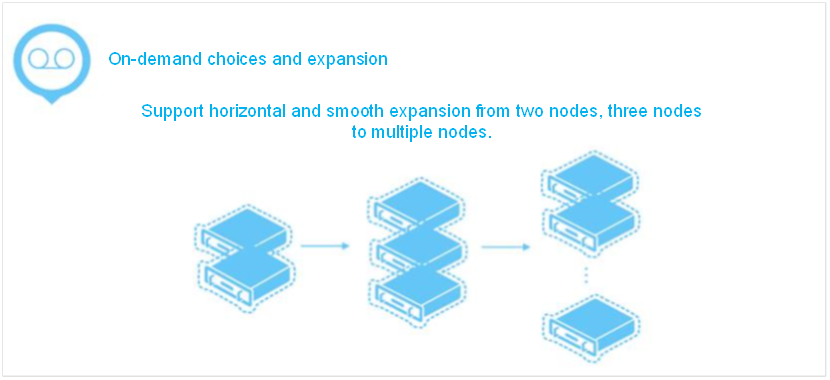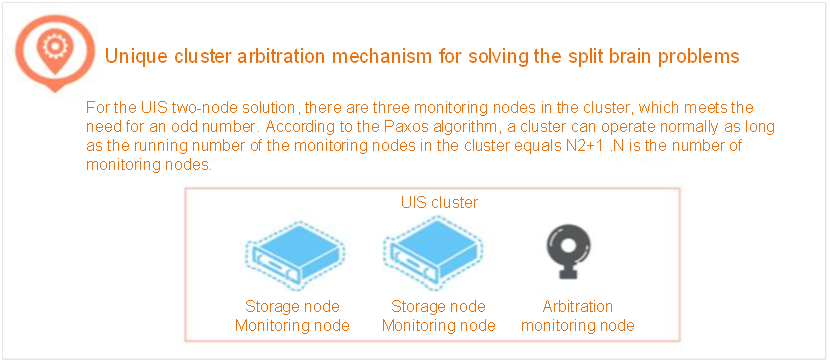UIS Hyper-converged Two-Node Solution
Introduction
The UIS hyper-converged cluster can be built through "two UIS hyper-converged appliances + one arbitration monitoring node". The computing, network, storage, security, and O&M monitoring are integrated, providing comprehensive hyper-converged product specifications, and greatly saving investment costs.
The arbitration monitoring node can be a customer-owned VM or a thin terminal (C102V is recommended).
Using a VM or a thin terminal as an arbitration monitoring node meets the minimum cluster requirement and ensures high cost performance of the solution.
UIS two-node solution networking

Appliance:
• This networking diagram is an example based on the minimum network configuration of the appliance (20+4 gigabit physical network interface).
• By default, the 10-gigabit network is used for the storage network. The interface of management network must be multiplexed with that of storage network.
• By default, the gigabit network is used for the service network. The 10-gigabit and 25G network adapters also can be selected according to actual service requirements.
Arbitration monitoring node: VM provided by customers: The VM is configured with at least three network adapters, and the management network, storage internal network, and storage external network are independently deployed.
• Management network: gigabit or 10-gigabit
• Storage internal network: 10-gigabit
• Storage external network: 10-gigabit
Arbitration monitoring node-thin terminal: The thin terminal is usually a single gigabit network port. Its management network, storage internal network, and storage external network multiplex a single gigabit network port.
Advantages of UIS two-node solution



Typical scenario of UIS two-node solution



